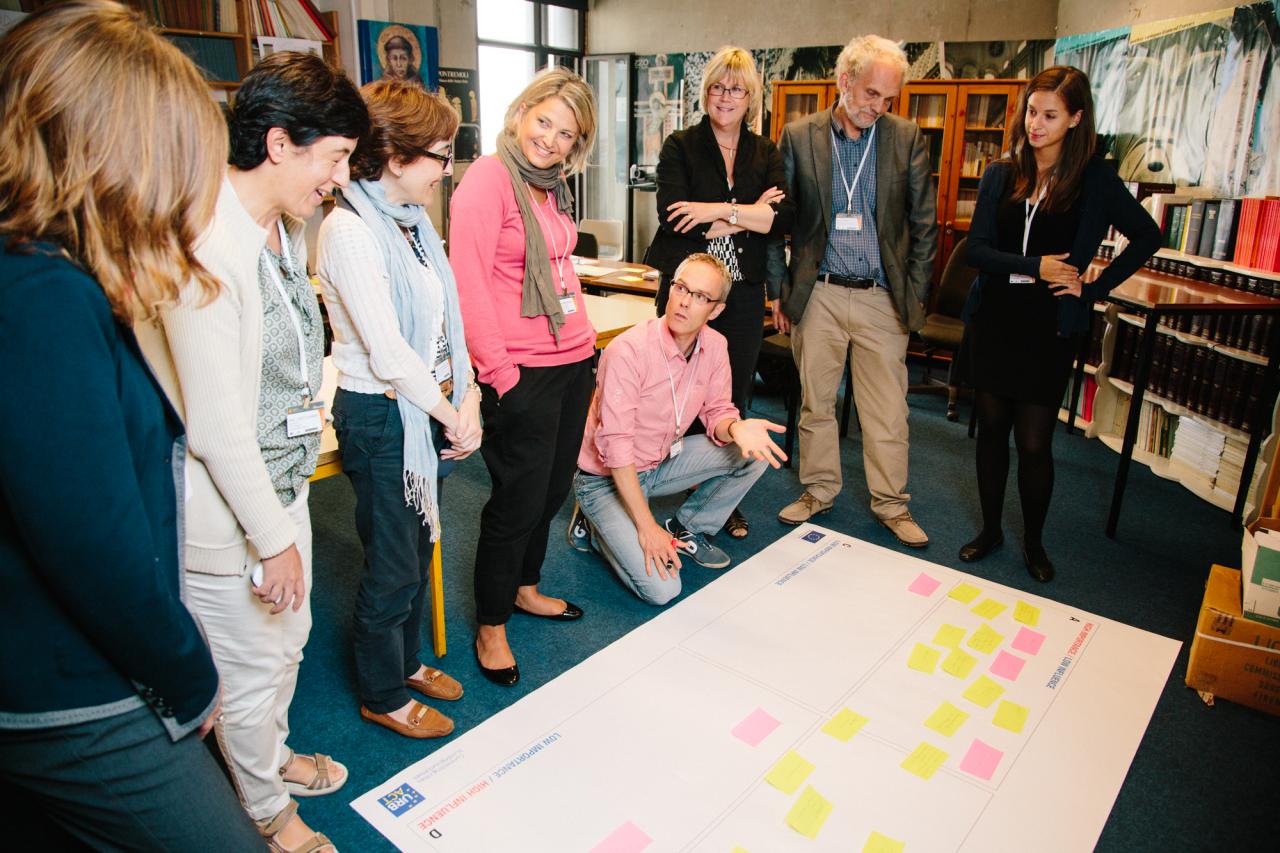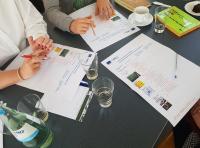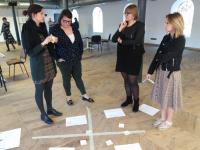
Find out how URBACT builds the capacity of cities to work in a more integrated and participatory way.
A report from the URBACT Campus
URBACT aims to build the capacity of cities to work in a more integrated and participatory way through networks, through exchange and learning as well as through the action planning, implementation and transfer processes. URBACT also provides tools and delivers customised training events to support ongoing networks in their learning journey.
In this context, between April and June this year, a series of bespoke 2-day workshops called URBACT Campus were rolled out. The aim? To guide the Good Practice and Transfer Cities in ongoing networks by providing practical knowledge and the chance to experiment with new working methods.
Each Campus took place at national or sub regional level with National URBACT Points hosting the sessions and involving all cities in their respective member state.
4 blocks with different objectives and learning outcomes
Day 1: How to work in an integrated and participatory way and reduce obstacles to transferring good practices.
Through world café discussions, the most prominent barriers were explored, participants improved their understanding of the transfer process and acquired skills for problem solving.
Day 2: The importance of reflection, capturing and sharing knowledge and facilitation techniques.
Exercises included ice-breaking, group work to self-assessment integrated approaches, stakeholder analysis mapping and creating short videos. Plenty of time was dedicated to informal networking and conversations that started in the working sessions continued long into the breaks.
After an extensive review of all 15 Campuses URBACT, collected feedback from 296 participants.
So what were the results and what did we learn?

Learning by doing
City practitioners really like interactive training that mixes formats, and allows the hands-on testing of tools that they can then go on to use at local level. The Campus provided a chance to try out, stakeholder analysis on a floor map analysing their influence/importance for the project, creating ‘vox pops’, using checklists for integration. Learning by doing brings greater insights, and also gives confidence to lead activities back home with local stakeholders.
Co-creation is challenging
The biggest challenge reported by cities across all member states and all groups was managing the local stakeholder group in a true co-creation process. Participative working requires new skills. It can be both time and resource intensive.
Common difficulties arise with group composition, unresponsive stakeholders, maintaining momentum and involving decision makers. During the Campus, city practitioners shared with each other ways to engage different groups and individuals, maintain interest and make meetings relevant and fun.
Lessons included getting in touch with all stakeholders early in the process to share your vision, your goals and set up the rules of the game by communicating about both obligations and benefits. Also helpful, is explaining in easy and concrete ways how people can play a pro-active role in the project.
Improving our understanding of integration

An important learning need for all urban professionals is to improve our understanding of the concept of integration and what it means in practice to work in an integrated way. Campus participants were given a checklist to explore which types of integration - such as policy, sector, and territorial - were most relevant to their own Good Practice transfer and how well they were achieving it. Most cities were already working well in terms of horizontal or sector integration, in that they are inviting representatives from different organisations, and different parts of the municipality to be part of the local group to integrate their perspective and priorities. With regard to policy integration the checklist reminded participants to keep thinking about other policy areas outside of their primary focus. For example: to consider the potential environmental implications in a project about economic development or inclusion. One way to do that is to invite ad hoc specialist guests such as a climate resilience, gender or procurement expert to meetings, to help the group to think laterally, and make sure they are at the very least not inadvertently causing negative consequences, but also potentially finding some win wins. This exercise led to a better grasp of what can seem like quite theoretical ideas on integration and how to apply them to improve the local plan.
More national networking please!
As well as building capacity, the Campus had an added value of building community and national networks. It reinforced how important it is to provide structured opportunities for peer exchange at national level. Participants really appreciated hearing what other cities in the same region are doing, including on urban challenges different from their own. The Polish cities even created a Basecamp space to exchange among themselves since the Campus in Lodz (PL) . There is a high demand for more national level events bringing cities together to share information and challenges.
“At the Campus I learned what the URBACT method was, namely the methodology for a transfer network and the tools used. I learned different ways of sharing and the value of sharing in a diversity of projects. I appreciated the participatory methodology and how the URBACT tools were put into practice. The interaction and motivation of the group. In conclusion: an added value to the level of knowledge.” Campus Participant in Braga, Portugal
URBACT Campus in stats
- 15 Campus training events
- 141 cities
- 447 individual participants
- 25 countries represented
- 49% participating for the first time in an URBACT event
- Satisfaction level over 4 out of 5 across the board
Clémentine Gravier, URBACT Capacity-Building Officer who coordinated the Campus initiative concludes:
“The series of URBACT Campus was a great learning opportunity for all people involved: participants, trainers, National URBACT Points and URBACT Secretariat. It is always interesting to see that, despite working on different policy fields and in different national contexts, city practitioners are facing the same obstacles, in particular when developing participatory ways of working. Providing them with opportunities to network, exchange, learn from each other is very fruitful and allows new solutions to emerge.”
More on the campus in national languages:
- In Croatian: Pregrađani sudjelovali na URBACT Campus za hrvatske i slovenske gradove u Novigrad
- In Dutch: Twee spannende, constructieve en verbindende URBACT-campussen
- In English: Five things we learned from the URBACT Campus, NUP IE
- In Estonian: URBACT Baltimaade ja Skandinaaviamaade kohtumine Riias mais 2019
- In Estonian with English subtitles: Urbact III - Stay Tuned, Ole Koolis
- In French: Deux URBACT Campus captivants, constructifs et fédérateurs
- In German: URBACT-Städte wollen auch den nationalen Austausch forcieren
- In Greek: Το URBACT Campus στον Πειραιά
- In Hungarian: URBACT Campus: képzés a sikeres jógyakorlat-átvevő munkához
- In Italian: Cinque cose che ci portiamo a casa dall’URBACT Campus di Torino (IT)
- In Portuguese: URBACT Campus | 28-29 maio 2019 | Braga (PT)
- In Romanian: 5 concluzii în urma URBACT Campus Romania
- In Spanish: Ciudades que comparten, redes que aprenden
- About Spain with English Subtitles: #UrbactCampus
- About Spain with Spanish subtitles: #URBACTCampus - Viladecans (ES)
- Watch more on Youtube!

